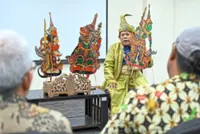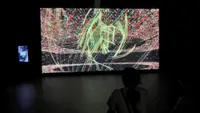Theatre actors Nabil Zakaria and Jun Teoh, like the protagonist in the upcoming revival of Irish dramatist Brian Friel’s classic play Philadelphia, Here I Come!, can identify with the duality of having a public and private persona.
Teoh and Nabil play the restless “Danny Tan” in KLPac’s adaptation of Philadelphia, Here I Come!, directed by veteran director Joe Hasham. Presented by The Actors Studio Seni Teater Rakyat, the 140-minute play (with two intermissions) will hit the stage from July 9-17 at Pentas 2, KLPac.





